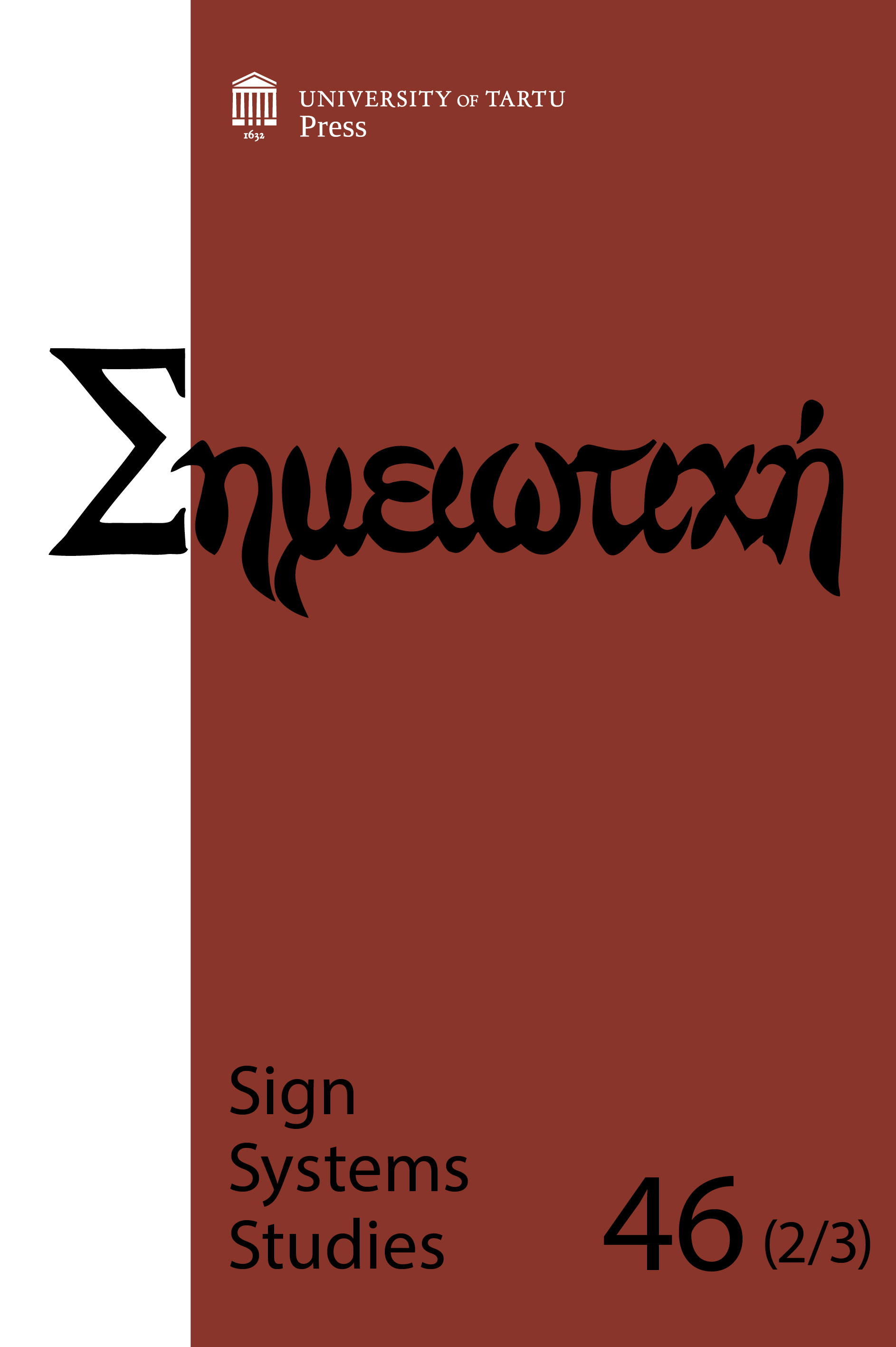Peirce’s garden of forking metaphors
DOI:
https://doi.org/10.12697/SSS.2018.46.2-3.01Keywords:
Peirce, metaphor, effete mind, play of musement, abduction, BorgesAbstract
The philosophic system of the founder of pragmatism Charles Sanders Peirce is rarely grasped from the point of view of its metaphoric usage. However, some of his most original yet often misunderstood and contested ideas such as those of ‘matter as effete mind’ and ‘the play of musement’ are metaphoric representations. In the present paper I am offering a new way to discuss the role of metaphors in Peirce’s philosophy by taking a twofold approach to the problem. On the one hand, metaphor itself becomes an object of inquiry. I touch upon the appearances of metaphoric thinking at the level of his classes of signs and metaphor’s relation to abductive inference. I trace those appearances in the process of their becoming from the spontaneity of Firstness towards the actuality of Secondness via the generalizing effects of Thirdness. Then I propose a flexible graphic model of metaphor that is parallel to Peirce’s inherent evolutionism. This model is seen as a “gentle” methodological tool for deriving meaning. To illustrate its applicability I include a playful nod to the literary works of Jorge Luis Borges to show how hard logical thought and aesthetic beauty complement each other.Downloads
Download data is not yet available.
Downloads
Published
2018-11-19
How to Cite
Feodorov, A. (2018). Peirce’s garden of forking metaphors. Sign Systems Studies, 46(2/3), 188–215. https://doi.org/10.12697/SSS.2018.46.2-3.01
Issue
Section
Articles


